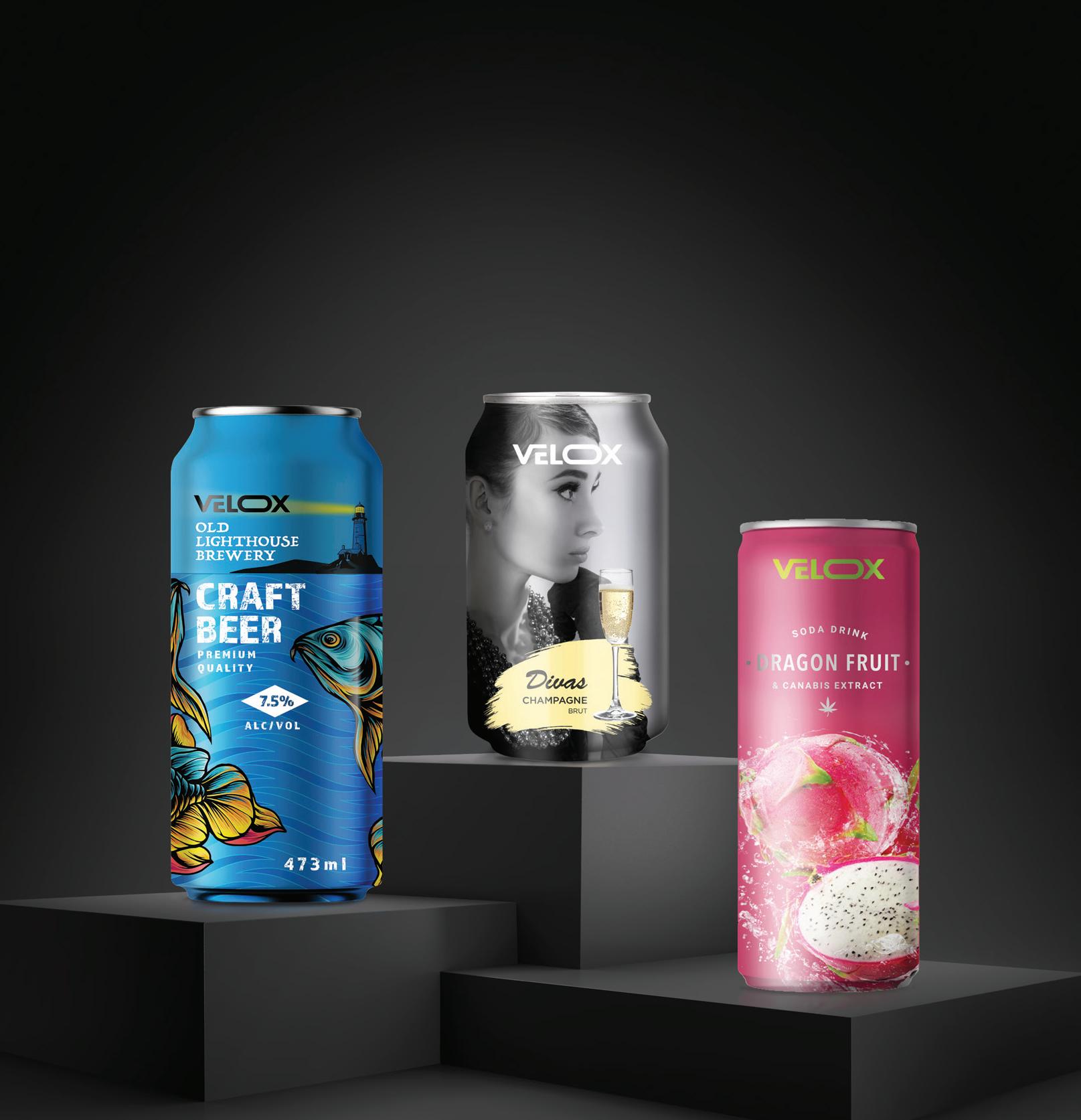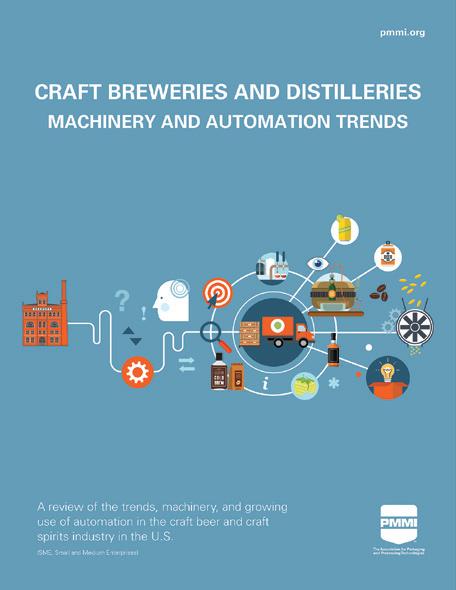
13 minute read
Automated Cartoner Allows Craft Company to Thrive
JOIN A GREAT TEAM
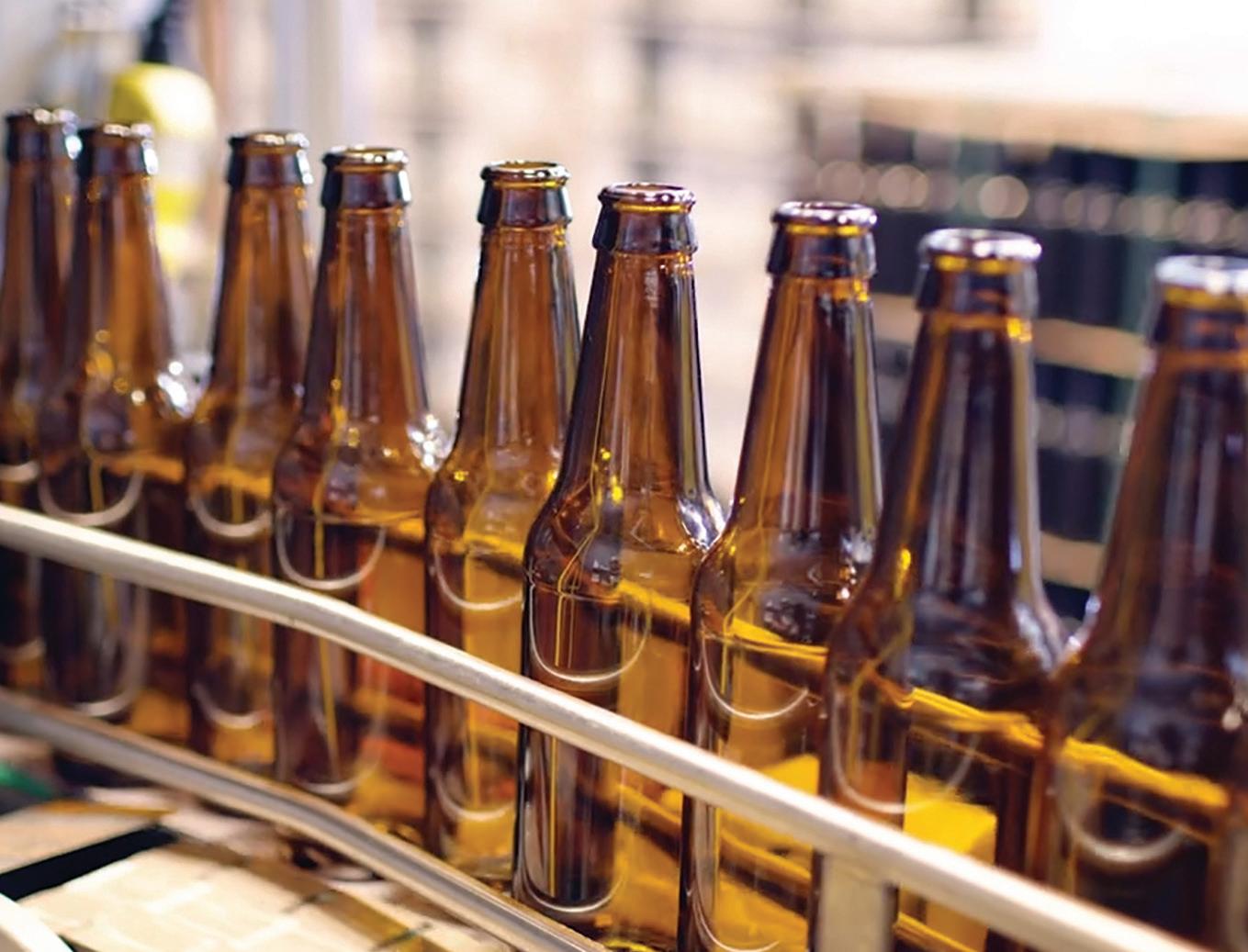
DISTRIBUTORS
represent Modular Conveyor Express An industry leading company with proven conveyor systems.
• Product Flexibility:
Quickly introduce new products into inventory • Process Flexibility:
Modular conveyor systems with standard designs and short lead times • Cost Flexibility:
Quote solutions with options for every project blueprint
Conveyors designed by Nercon www.modularconveyor.com 844.293.2816
control over process and throughput, and the trending and batch protocol are really fabulous. And we can use historical data to inform our process decisions when we’re working out a new recipe or a new process.”
The level of automation enables the operator to spend less time turning valves, focusing efforts more on monitoring the process more closely. “With an automated system, you have the ability to drill in and really dial in pHs and temperatures—the small things that make a big impact over the long term with flavor and beer stability,” McManus says. “Also, it provides a level of repeatability that is the hallmark of what you’re trying to do in brewing—get it right, and then do it over and over.”
CombiCube flexibility
The Industrial Arts brewhouse is already pretty loaded, O’Neil says, so he doesn’t think there’s much they might still add. But the modularity of the CombiCube nonetheless provides some key flexibility. “The way it’s engineered, where there’s access to everything, if you wanted to do something wild like add a second kettle or some other piece of equipment like that, they would be able to splice that in,” he says.
O’Neil was impressed with the flexibility of the Krones Steinecker team as well. “Maybe it’s just that philosophy of being modular, but it’s really helpful that it’s not a rigid approach,” he says. “This was a very cooperative project, and they really wanted to make our wort. They did not try to tell us what our wort should be like, but they did tell us that some of our engineering ideas were insufficient.” O’Neil also adds, “They found solutions for the things that were really important to us that they weren’t necessarily offering if we didn’t ask.”
A key factor giving Steinecker the edge for a brewery like Industrial Arts is that it understands the operations of large-scale facilities and is applying those same principles for craft brewers, shrinking the technology down as needed, O’Neil notes. “I think that gives them an edge vs. some of the smaller, more craft-oriented suppliers who are trying to scale up,” he says. Twenty years ago, the kinds of technologies that Steinecker offers were only available on the biggest systems. “That’s one of the things that has set our brewery apart is that we’ve been a small brewery operating more like a bigger one, using technology, using control, inventory tracking software—all the tools that we could find to make us better, more efficient at what we’re doing…hopefully with the result of delivering the freshest, most flavorful and hoppiest beer to the market.” ●
Automated Cartoner Allows Craft Company to Thrive
Mother Earth Brewing Company is increasing throughput and improving quality with an automated cartoner, which is also helping them reach production goals amid labor shortages and pandemic woes.
By Natalie Craig, Features Editor
Mother Earth Brewing Company started as a hobby for Daniel and Jon Love, and Kamron Khannakhjavani in 2010 in San Diego. The company operated out of 2200-sq.-ft.-industrial space, which allowed the business to grow quickly and for the company to begin self-distribution of 22-oz. bottles and kegs to stores, bars, and restaurants. A large taphouse in Vista, Calif. followed and gave the company more opportunities to expand its production spaces—adding nearly 28,000 sq. ft.
The brewer entered major distribution in late 2013. After double-digit growth in 2014, Daniel Love wanted to expand operations but had a hard time doing business and finding new opportunities for growth in Southern California.
“It’s just not a business-friendly state for someone of our size, less than a hundred employees,” Daniel Love says.

Mother Earth Brewing Company upgraded to a Ska Double Eagle depalletizer in 2020 (left). The company invested in an Econocorp Spartan cartoner (above), which allowed them to automate the case and tray erecting and packing.
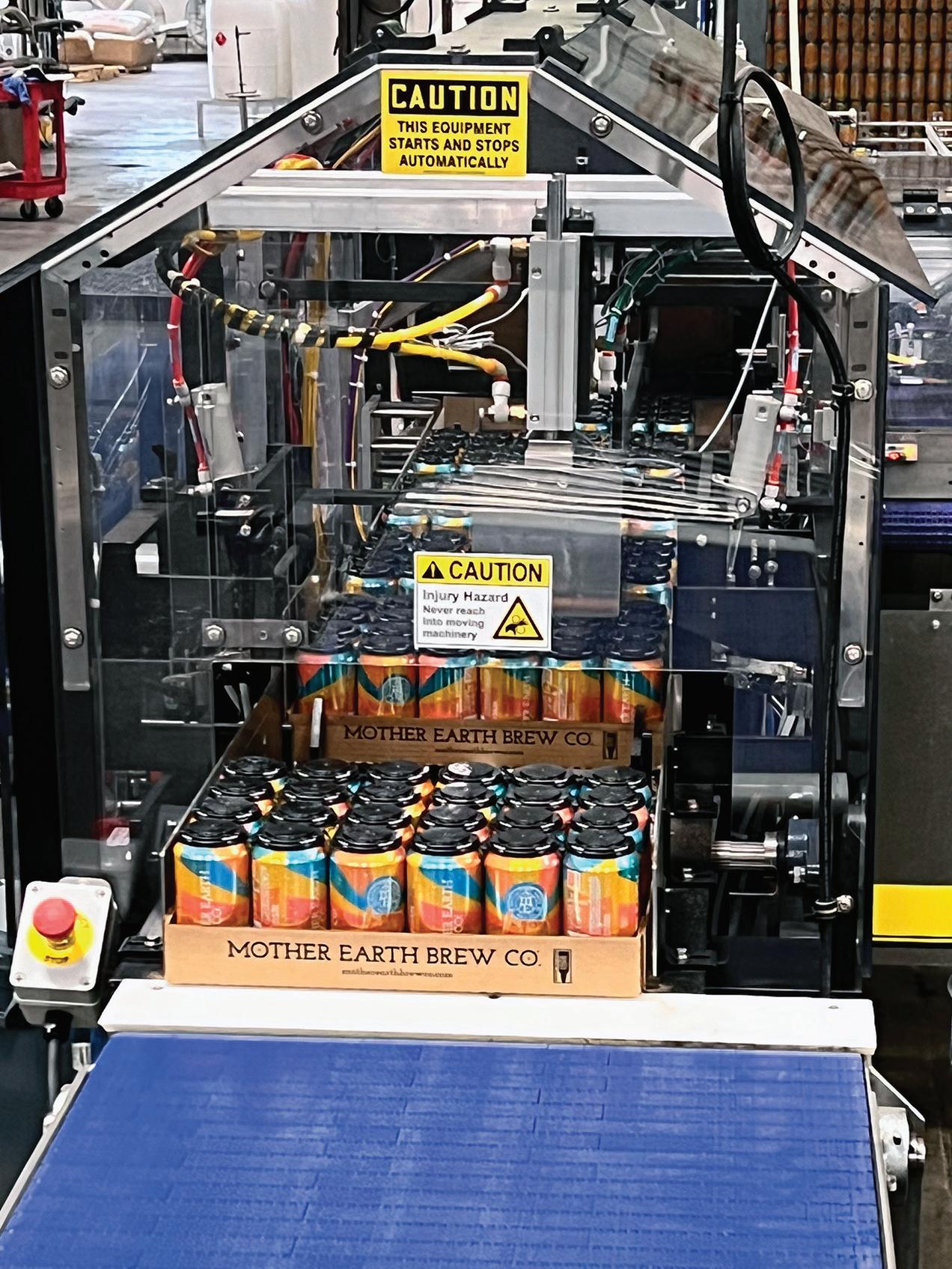
Expanding up north



So, as many Californians do, Daniel Love headed up north to Boise, Idaho where he found plenty of opportunities to partner with the local government and initiatives that supported small businesses like his.
The company built a 40,000-sq.-ft. production facility 15 miles west of Boise in the neighboring city of Nampa, which provided them a lot of space to sprawl.
The facility houses a 40 beer barrel volume (bbl) multi-vessel Mueller brewhouse, and the capacity to produce more than 100,000 bbls a year, becoming one of the largest breweries in Idaho, according to the company. The Nampa production facility supports most of the company’s growth and produces beer for all markets outside Southern California. The original Vista brewery continues to provide draft and specialty offerings to its home market while also managing the creation of one-off brews for visitors at its retail operations in North County San Diego.
Under the brand, there are eight different year-round beers, including its claim to fame, the Cali Creamin’ vanilla cream ale.
“It sounds like it might be sweet, but it’s a dry beer,” says Daniel Love. “We use Madagascar vanilla bean instead of using hops. It is very special and unique. Nobody else does this type of beer.” Automated cartoner allows Mother Earth to scale amid pandemic woes
As the COVID-19 pandemic began, it also created a few obstacles for the craft company during its record growth. Its tasting room in California shuttered, but the company kept its draft beer brewery operation in Vista to keep distribution flowing in Southern California via Stone Brewing. Currently, the Nampa facility still distributes to 20 different states and 11 different countries, while also filling in where the Vista brewery can’t. All in all, business is good as the company puts out about 10 million cans per year. In March of 2020, the company brought one of its Wild Goose canning machines up to Nampa—where it already had another of the same machine—from its California location, which allowed them to ramp up to 80 cans/min. The company spends 70% of its time running 24-count • Single and mass flow • Empty or full transport • Hand-pack stations • Semi-automated systems • Experts in Accumulation • Maximize productivity • Minimize floor space • Designed for future expansion Give us a shot. Multi-Conveyor ... your best, conveyed better. b t d b tt www.multi-conveyor.com


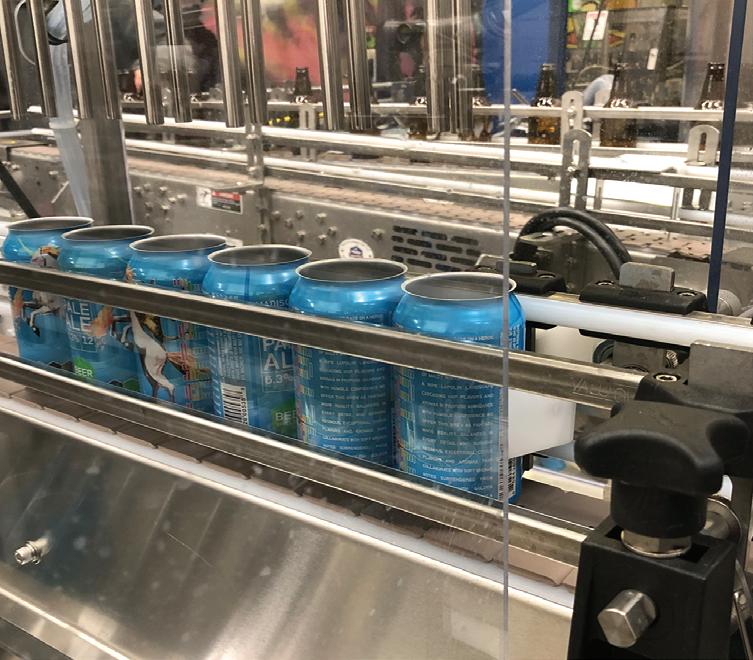


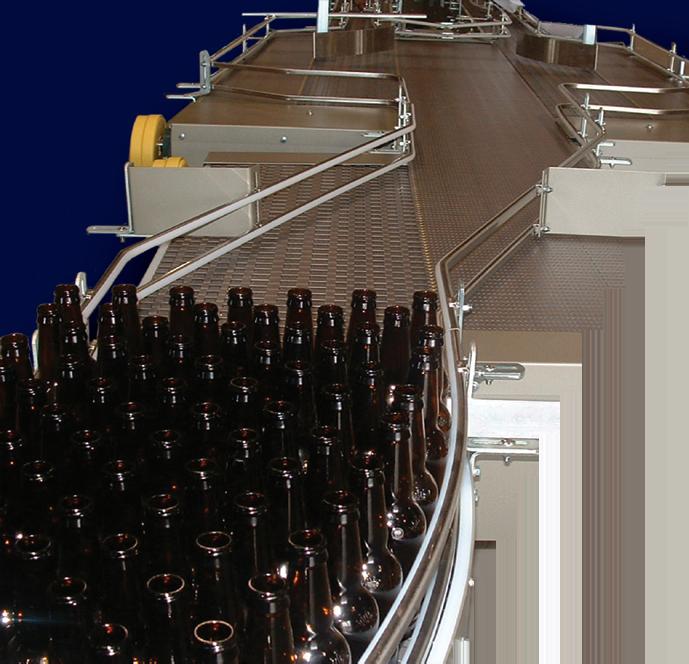
mix packs and the other 30% of the time running 12-packs with its Cali Creamin’, Tierra Madre, and Boo Koo beers. Up until recently, the packing was handled manually, but record labor shortages and the amount of variety necessitated automation.
The company invested in an Econocorp Spartan cartoner, which allowed it to automate the case and tray erecting and packing.
“We do a lot of stuff in 24-pack trays,” says Chris Baker, director of brewing operations. “But we were also trying to touch on that carton side of the business. We wanted something that would do both because, individually, the two machines are expensive. So, getting something that was a good bridge between them was what we were looking for, and the Spartan really covered that.”
Not only was the company packaging both 12-pack cartons and 24-pack trays for its different beers, but some brands added in the complexity of having both 12- and 16-oz cans. This necessitated a cartoner that allowed them to changeover often with ease. Now, they can change the Econocorp cartoner over in less than 20 minutes, which doesn’t negatively impact production goals.
“We’re kind of all over the place, so packaging needs to be pretty nimble so that we can get onto one brand and knock out four different formats and then get into another brand,” Baker says.
It was also important to find a cartoner that could keep up with their current canning line capabilities but also adapt to a larger and faster operation as the company grows.
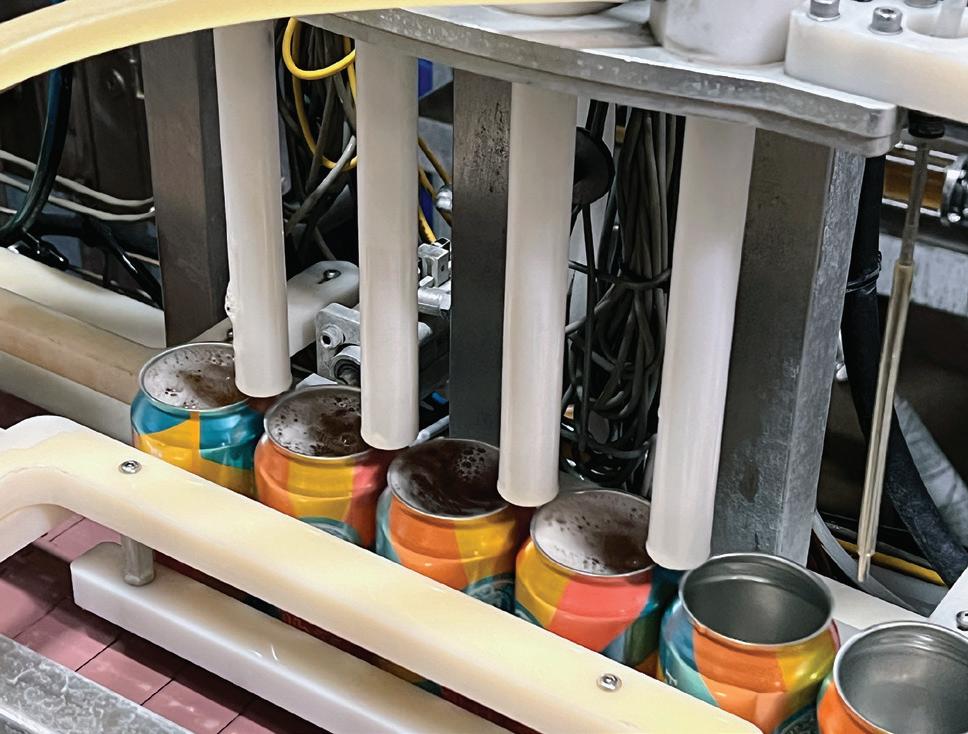
The Ultimate TV & Digital Display Enclosures Protect TVs & Displays
Almost Anywhere...



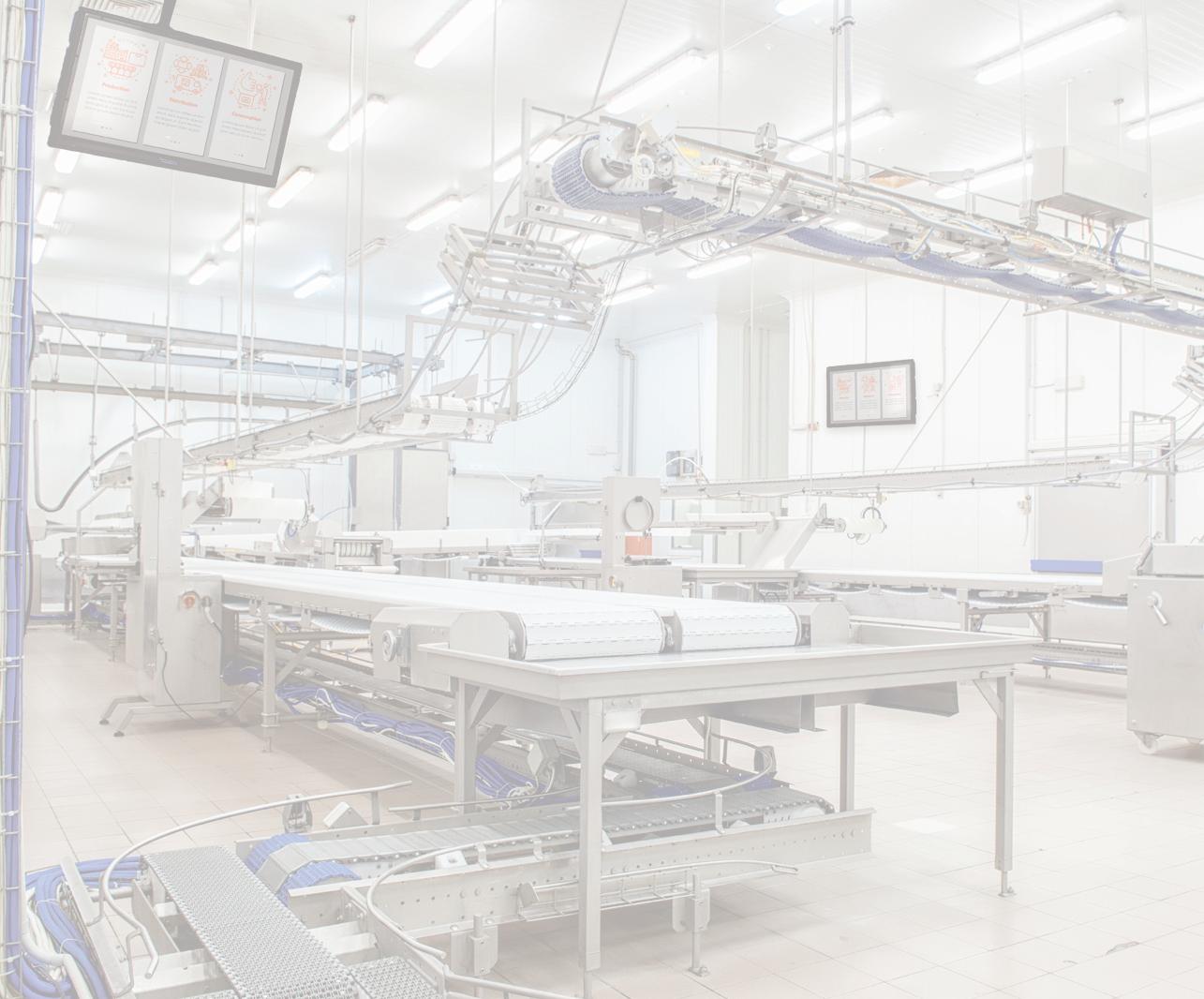
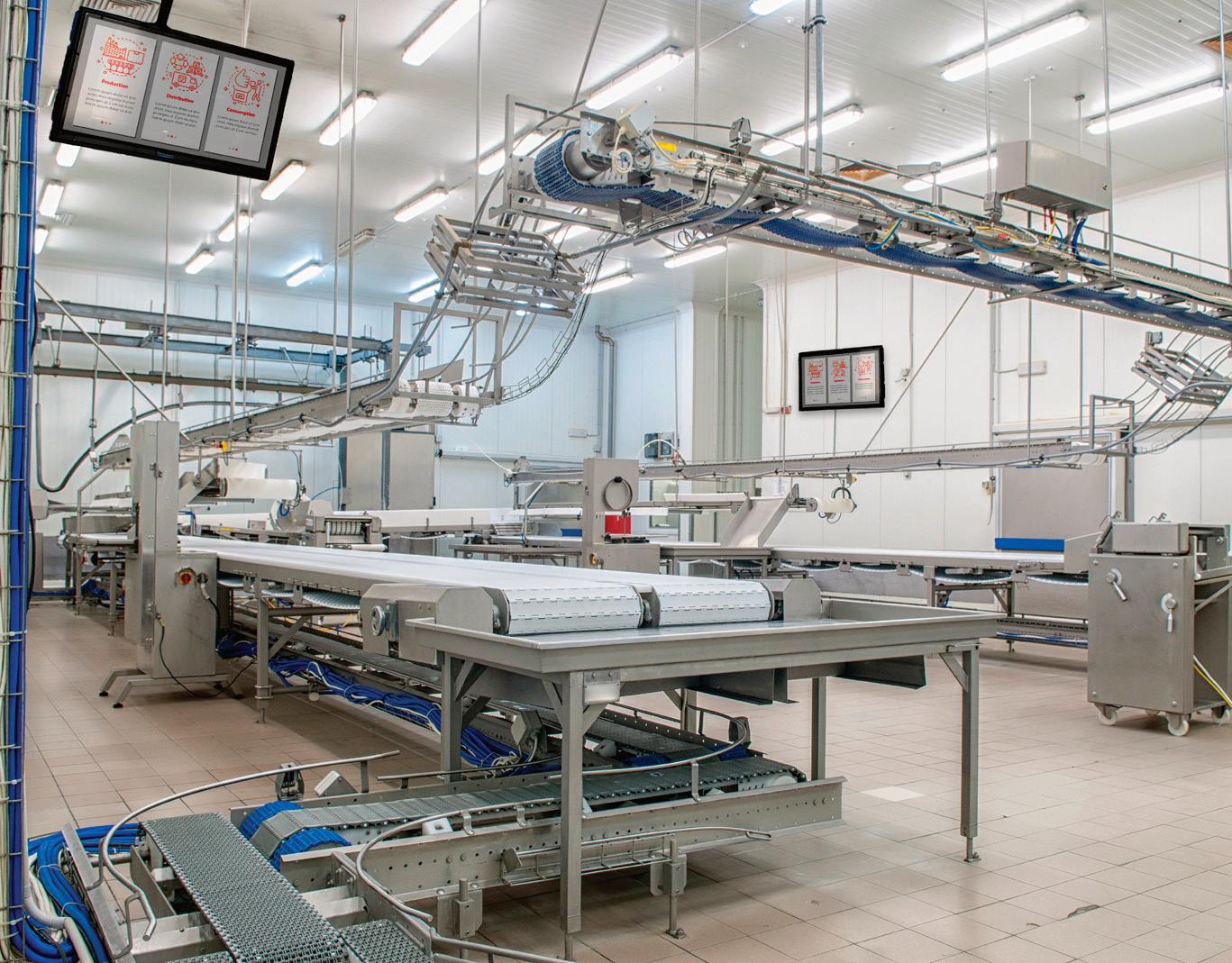


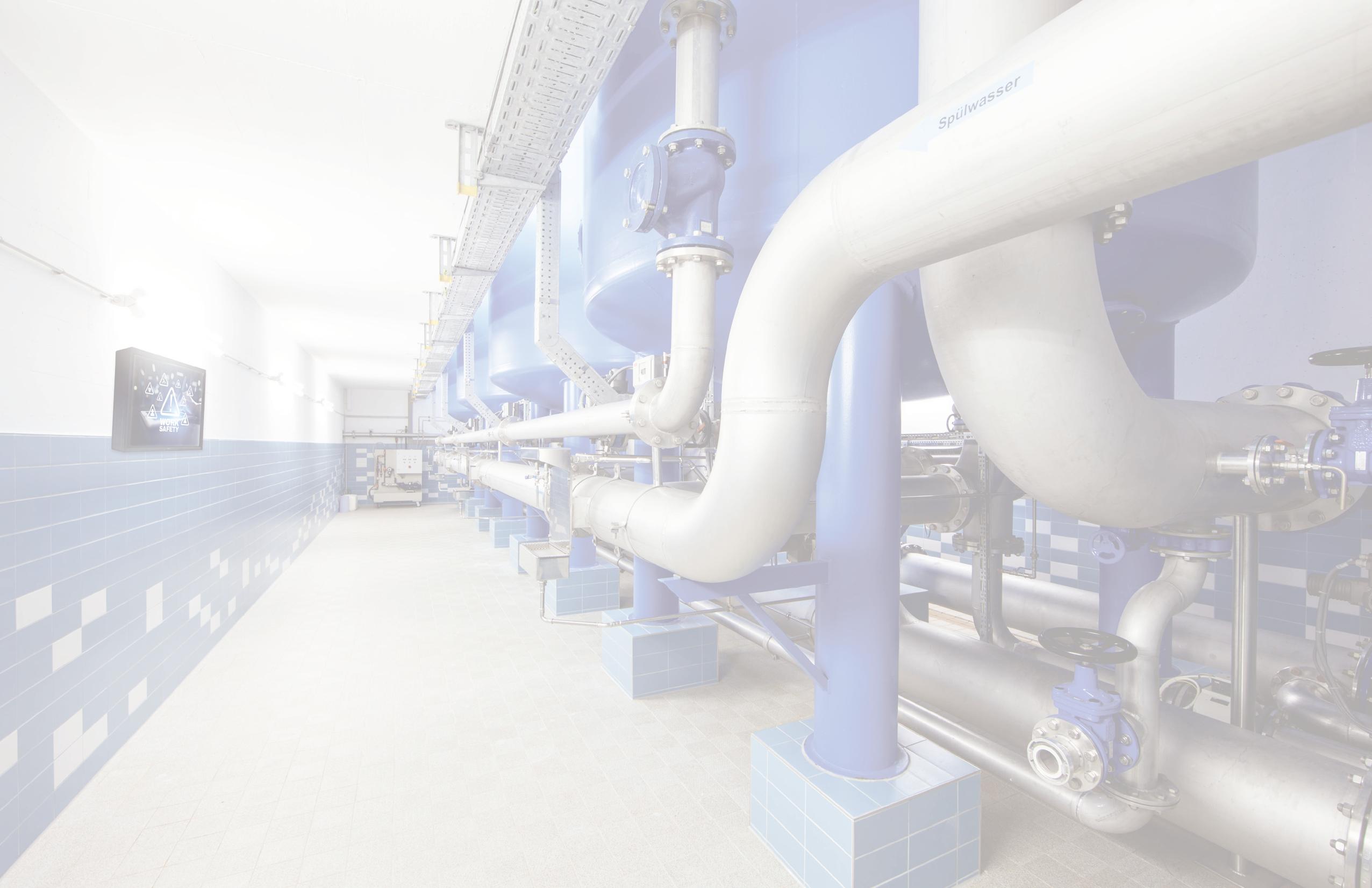
t h e d i s p l a y s h i e l d . c o m / F E 1 - 8 0 0 - 3 3 1 - 2 6 2 8
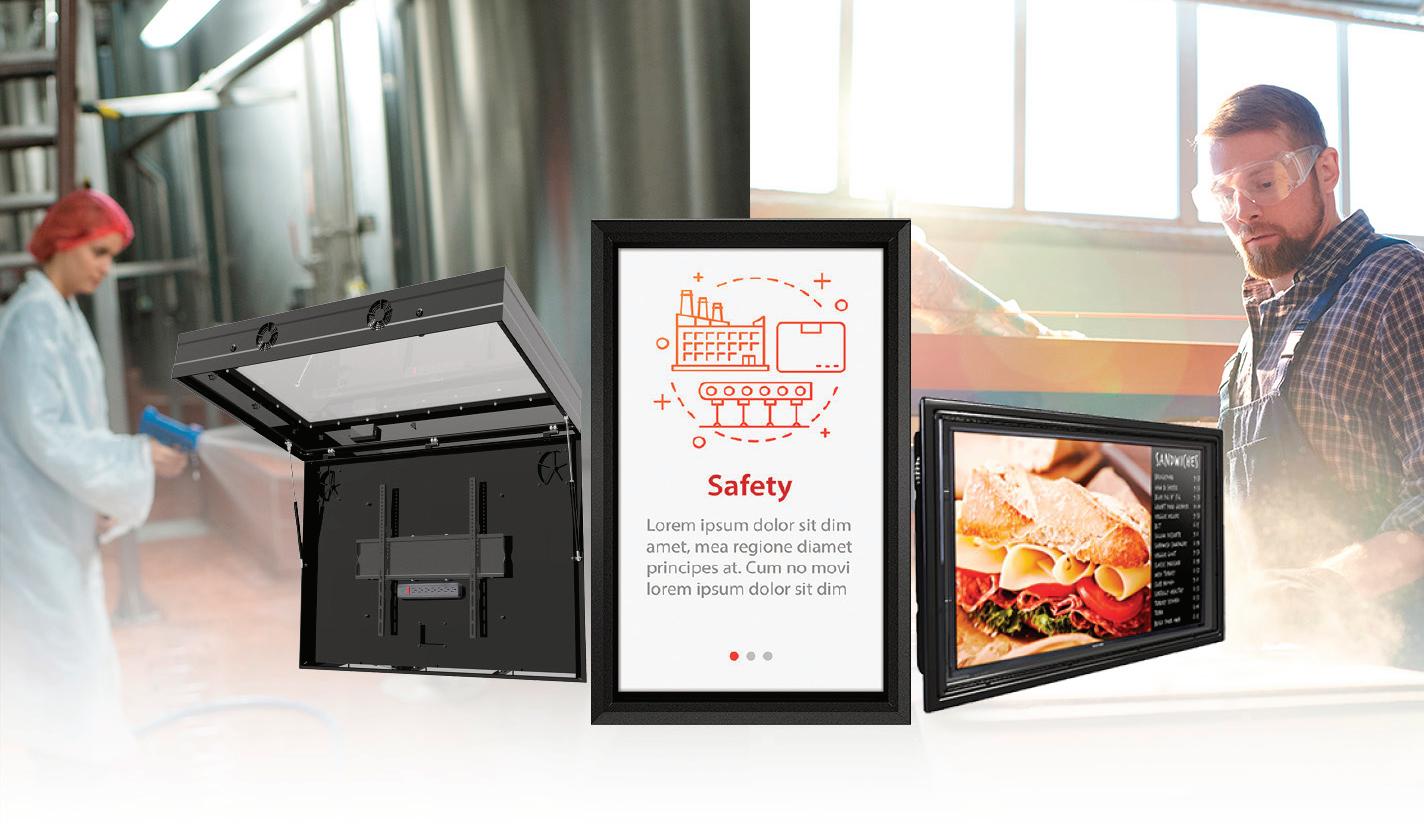
We supply affordable TV and display protection to facilities across the globe. Protect your screens from water and other liquids, certain chemicals, dust, debris, tampering, theft, and much more. Improve safety, communications, and save money today.
“We want to look at 200 to 250 cans per minute next, and this machine can keep up with it,” Baker says. “At our size, that’s a tough machine to find, because the reality was everyone else wanted to sell us something that would either work for the next six months or be so expensive and so overthe-top that it would be overkill for the next year or whatever it takes us to get into a bigger line. This is something we can grow into and expand upon pretty easily.”
How the line works together
The Econocorp cartoner is the latest addition to Mother Earth Brewing’s filling and packaging line, but there is a lot more going on upstream keeping the company at its target of 80 cans/min.
The company runs two separate lines, starting with a Ska Double Eagle depalletizer, to which the company upgraded in 2020. The cans run through two separate Wild Goose WGC 250 canning lines, where cans are rinsed and sanitized by two twist rinsers, filled, and seamed. Mother Earth has been running its Wild Goose lines for the past six years.
“There are an infinite number of adjustments and ability to adjust things,” Baker says. “If I run a milk stout, I can slow my belts down to give it time to foam out how I want. It’s more versatile. While I can’t run super high carbonation levels, I can run nitro beers. We run everything through that.”
Custom conveyance brings the two lines together to apply datecodes using Domino A320i ink jet printers through a Heuft Basic low fill/low pressure detector, a Chart Industries nitrogen doser, an Anton Paar CBox, and a Zahm piercing unit to check dissolved oxygen levels.
“Along with the Anton Paar CBox, we do have a very extensive laboratory, and a lot of breweries our size don’t have that,” Daniel Love says. “We do pull off a number of cans in line at the beginning, the middle, and the end and we store them warm, cold, and hot. We taste those about every other Friday with
Check out Mother Earth Brewing Company’s line in action and get a look inside their Nampa production facility.
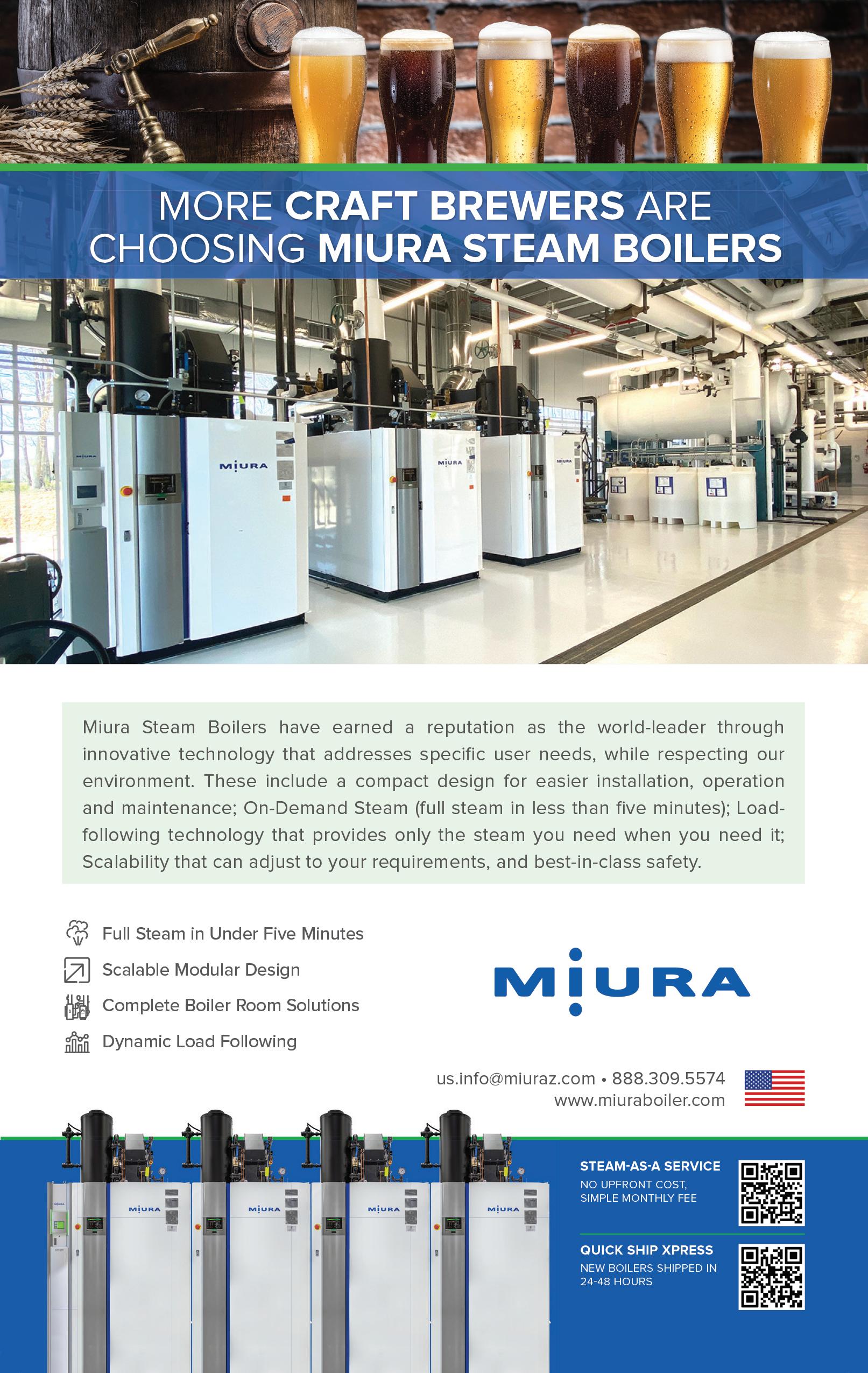
our brewers, so we have an extensive ability to react to somebody if they get a [off-flavor] beer and they light us up on Facebook or send us an email. We know before we put something in the can that the product is going to be exactly what it needs to be and there aren’t going to be any inconsistencies in it.”
After the cans run through inspection, they are fed onto an accumulation table, which allows the company to keep fillers running if equipment backs up or slows downstream.
“We try to think the setup through so that we could add in bigger pieces without having to change everything,” Baker says.
For higher volume beers like the Cali Creamin’, Mother Earth uses printed cans, which run straight into a PakTech can carrier applicator 120/180 from the accumulation table. The applicator can be configured for a six-pack or four-pack.
For lower volume beers that may not meet printed can supplier minimum order quantities (MOQ) like Project X, which is a year-round rotating beer that has new labels and new artwork all the time, Mother Earth can side-stream these cans to a Pack Leader PL-501 can labeler, which applies pressure sensitive labels from local Boise-based label maker Action Quality Printers.
From there, a long infeed conveyor brings cans to the Econocorp cartoner.
“We set it up so that we could put some tables on it and make that feed pretty easily.” Baker says, “We set these tables along the side, and then we just push these on with
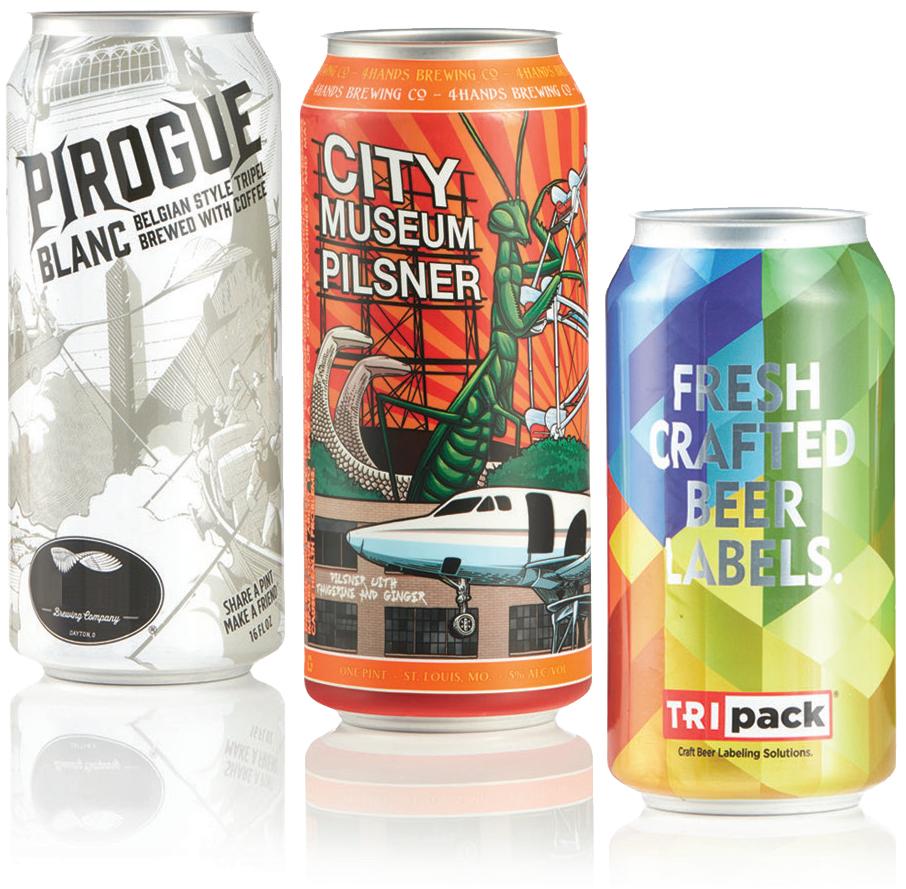



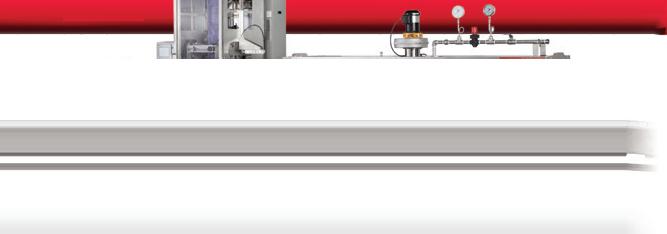
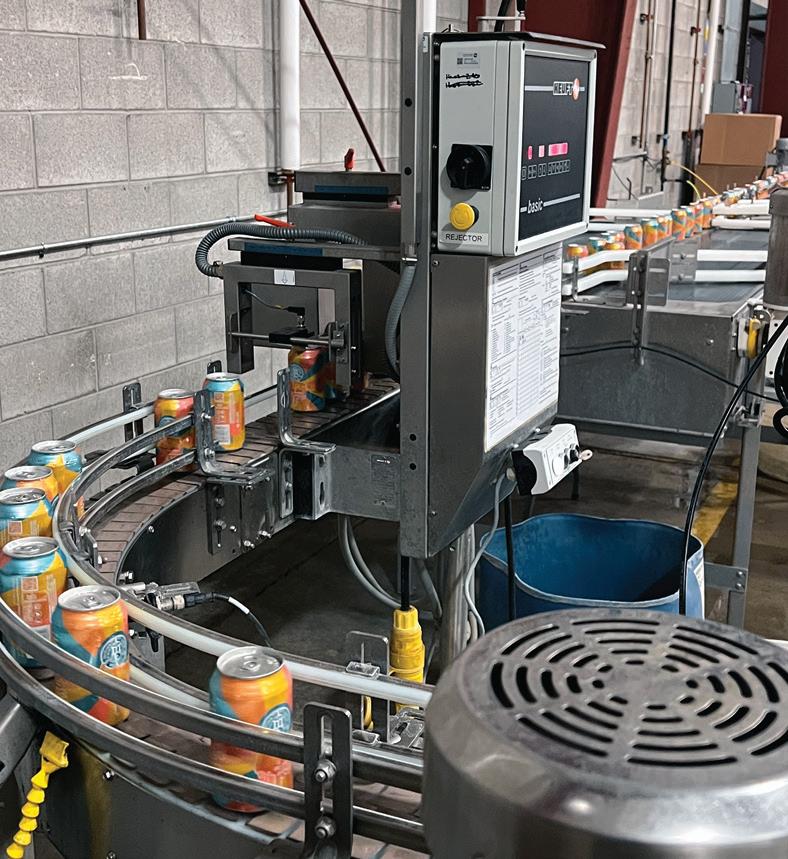
Custom conveyance brings the two Wild Goose lines together and sends cans through a Heuft Basic low fill/ low pressure detector.


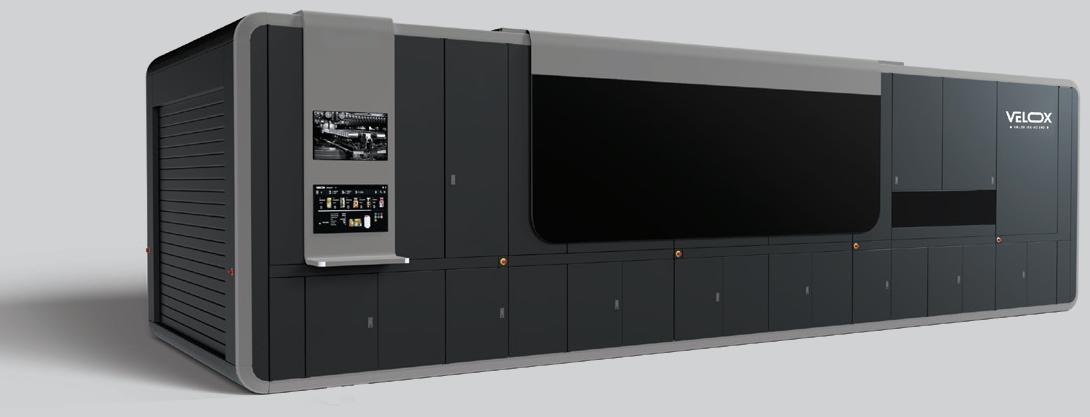
these lanes and we now have the ability to either do six varieties, four cans of each. We could do two varieties, with 12 each, or we could do two varieties, six each, and a 12pack. We can do literally anything we want.”
Then, a four-foot conveyor leads cans to another Domino A320i date-coder to code the outside of the cartons.
“Some brands are still missing on that front and it’s really frustrating to buy a 12-pack of an IPA, you’re really excited, take it home, and realize it’s really old,” Baker says. “So, we code the outside of those.”
A gravity feed conveyor takes the cans to a stop point where three to four people hand-stack cases onto a pallet in preparation for the company’s pallet wrapper.
What’s next for Mother Earth
As the company continues to scale, Daniel Love and Baker are building exibility into their operations and line so that when the time comes, they can ramp up to 200 to 250 cans/min. But they are also keeping an eye on quality. Along with its extensive testing, the company has also developed
MORE CRAFT BREWING AND DISTILLING RESOURCES
Common concerns amongst craft producers include: space constraints, implementing automation, small-batch changeover, outsourcing and packaging considerations. Learn more from Craft Breweries and Distilleries Machinery and Automation Trends, a 20-page whitepaper from PMMI’s Business Intelligence. Download the asset for free at pwgo.to/5430. ●
